![]() — Home — Business News
— Home — Business News
Weekly Business News from Myanmar
-
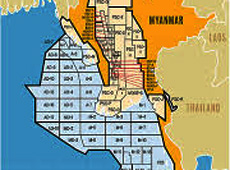
Myanmar government is set to receive a record USD 60 million in fees from oil contracts during the 2015-16 fiscal year
From these oil blocks contracts, the reward money of contract for 2011-12 totalled $3.55 million, in 2012-13 it was $19.47 million, and in 2013-14 it was $7.29 million, according to Ministry of Energy data. “For inland oil blocks, the companies complete EIA/SIA survey within the first six months. When related ministries approve the project, they can start operations. They pay a ‘contract reward’ money to us before they begin operations,” U Min MinOo, secretary of the Public Relations Department of the Ministry of Energy, told Myanmar Business Today. -
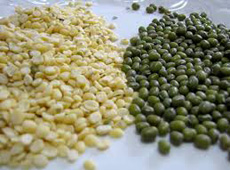
India pre-orders Myanmar's fair average quality (FAQ) mung beans with the price of USD 1,400 per tonne
“They have pre-ordered fair average quality (FAQ) February and March Mung beans with the price of $1,400 per tonne, which is approximately K1.6-1.7 million,” said U Min KoOo, secretary of the Association. -

An updated draft of the Public Debt Management Law has recently been submitted to the parliament's bill committee
An updated draft of the Public Debt Management Law has recently been submitted to parliament’s bill committee. The new law is aimed at managing the country’s domestic and external debts more effectively, according to the Ministry of Finance. -
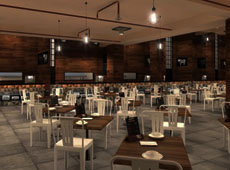
Myanmar Plaza, built by Vietnamese property developer Hoang Anh Gia Lai (HAGL), is set to open on 5 December
The 4,000-square-metre food court at Myanmar Plaza will offer 31 cafes, fast food, fine dining and teashops, and will be the largest in Myanmar by far. The court will have a Burmese corner, International corner and Gourmet corner. -

Myanmar's businesses slow to adapt to improvements in internet: Consult-Myanmar Co.Ltd
Consult Myanmar studied 72 audit/accounting firms and 44 law firms in Yangon and were flabbergasted to find that 93% and 68% respectively do not have websites and 70% of them are still using Gmail. -
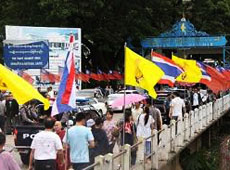
As of mid-November, Myanmar's border trade stands at more than USD 4 billion, up by USD 500 million which is 14% higher than that of the previous year: Ministry of Commerce
The first eight months of the current financial year has seen an increase in trade of $492.917 million compared to last year, that is, from $3.751 billion to $4.244 billion. The busiest station, last year and this year, was Muse on the Chinese border, which has recorded $306.899 million more than last year, an increase to $3.258 billion from $2.951 billion. The second largest was Myawaddy on the Thai border, which nearly doubled its trade from $210.623 million last year to $410.118 million this year, an increase of $199.495 million. -
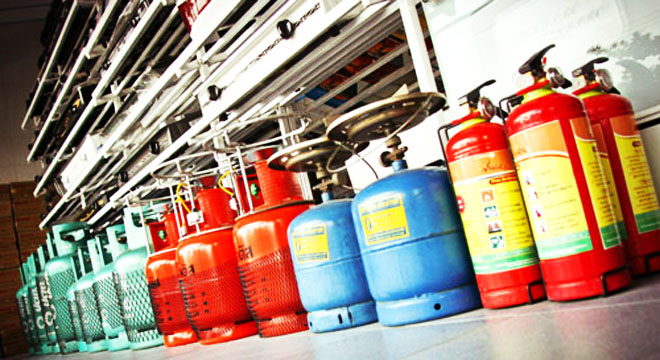
Eleven foreign and international companies apply for a wholesale distribution of liquefied petroleum gas (LPG) joint venture with the state-owned Myanma Petrochemical Enterprise
According to the Ministry of Energy, 21 companies bought tender documents but only 11 had applied by the November 5 deadline. -

Rice from eastern Shan State has once again been permitted to be exported to China through border trade: Myanmar's Ministry of Commerce
“Due to the fighting, border trade had been closed. Now the region is peaceful and the conditions are stable, so the border has been opened and rice exports are permitted again,” said U KhinMaungLwin, deputy director from the Ministry of Commerce. -
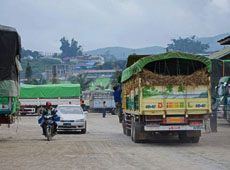
Chinese fruit traders extend reach into Shan State to deal directly with fruit farmers, rather than with brokers at the Muse border post
Bilateral trade between the two countries stood at $9.681 billion in fiscal year 2015 China is by far the main destination for Myanmar exports. It represented 37.3 percent of total exports last fiscal year. Thailand was the second-largest destination with 32.2pc, followed by Singapore with 6.1pc, India with 6.0pc and Japan with 4.4pc, according to Myanmar’s Central Statistical Organization. -
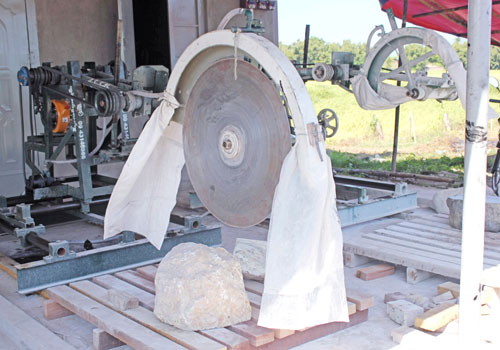
Deserted by Chinese buyers, the gems market in Kachin State is struggling as prices fall by two thirds
“Chinese buyers have to pay high taxes in China if they buy our value-added products. This has had a huge impact on the jade market,” he said. Trader U La Wum of Pha Kant, said 80 percent of jade sold at the market is bought by the Chinese and the other 20pc goes to buyers from Myitkyina or Mandalay. “The market is very quiet,” he said. The market opened last May in an industrial zone on the outskirts of Myitkyina with over 100 shops dealing in amber and jade. Many have had to close as prices fall, with sources claiming the price of jade had dropped by two-thirds. For example, a grade-D bracelet, previously sold at K15,000 is now going for just K5000.
Business News
Copyright © 2014 Business Information Center All Rights Reserved.







